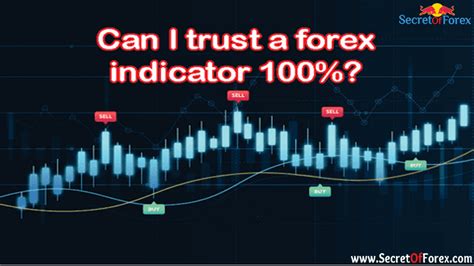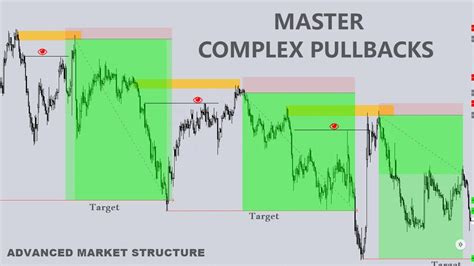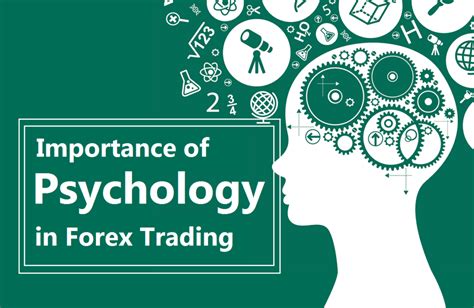
Evaluating Trust in Forex Platforms
The forex market, a global hub for currency trading, is both lucrative and complex. Amid its opportunities, traders face the challenge of identifying trustworthy platforms. This cluster explores the core indicators of trust in forex platforms, guiding users through essential aspects like regulatory compliance, warning signs of scams, and the features that ensure reliability.
What Makes a Forex Platform Trustworthy?
A trustworthy forex platform stands out through transparency, strong regulatory backing, and customer-centric practices. Regulation by entities like the FCA or ASIC ensures compliance with stringent industry standards, reducing risks for traders. Transparency in trading conditions, including clear policies on spreads, leverage, and commissions, builds trust. Furthermore, platforms that prioritize data security, using encryption and secure payment methods, instill confidence among users.
Common Red Flags in Forex Scams
Fraudulent forex platforms often lure traders with promises of guaranteed high returns—an impossible claim in this volatile market. Unregulated brokers frequently operate in jurisdictions with little oversight, making them difficult to track or hold accountable. A lack of verifiable customer support, coupled with vague withdrawal policies, are additional red flags. Another tell-tale sign is aggressive marketing, often with unrealistic testimonials or fake reviews. Recognizing these signs can save traders from significant financial loss.
Key Features of Reliable Platforms
Reliable platforms excel in functionality and integrity. Secure payment systems, such as PayPal or Skrill, are hallmarks of trust. High-quality customer support, available via chat, email, or phone, ensures users can resolve issues efficiently. Moreover, robust technical tools, including MT4 or MT5, allow traders to execute and analyze trades seamlessly. Finally, reliable platforms demonstrate operational consistency, avoiding technical glitches that can affect trading outcomes.
Trust Indicators in Forex Platforms
| Trust Indicator | Description | Examples |
|---|---|---|
| Regulatory Compliance | Adherence to standards set by global regulators. | FCA (UK), ASIC (Australia), CySEC (Cyprus) |
| Transparent Policies | Clear terms regarding fees, spreads, and leverage. | Disclosure of commission rates and swap fees. |
| Secure Payments | Use of reliable and encrypted payment methods. | PayPal, Skrill, Neteller |
| Customer Support | Availability and responsiveness across multiple channels. | 24/7 chat, email, and telephone support. |
| Trading Tools | Advanced platforms offering technical analysis and execution. | MetaTrader 4, MetaTrader 5, cTrader |
| Fraud Warning Signs | Absence of guarantees, clarity on withdrawals, and avoidance of aggressive or fake marketing practices. | Realistic claims and transparent testimonials. |
This cluster provides a detailed roadmap for traders to discern trustworthy forex platforms, combining essential knowledge with actionable insights.
Regulatory Standards in Forex Markets
Regulation is the backbone of trust in the forex market. It ensures fair practices, protects traders from fraud, and enhances transparency. This cluster explores the intricacies of global forex regulations, the role they play in building confidence, and the challenges posed by offshore platforms. These insights are essential for traders navigating the complex landscape of forex trading.
Understanding Global Forex Regulations
Forex regulation varies across jurisdictions, but its primary goal remains consistent: safeguarding market participants. Regulatory bodies like the Financial Conduct Authority (FCA) in the UK and the Australian Securities and Investments Commission (ASIC) enforce strict guidelines to prevent fraud and promote transparency. These entities mandate proper financial reporting, capital requirements, and dispute resolution mechanisms. However, not all regions maintain equally stringent oversight, creating disparities in trader protection.
The Impact of Regulation on Trader Confidence
A well-regulated market instills confidence by minimizing risks and ensuring fairness. Traders are more likely to trust brokers under renowned regulators like CySEC or CFTC. Regulatory frameworks enforce operational integrity, such as preventing conflicts of interest and maintaining segregated client accounts. Case studies highlight the impact of unregulated brokers: platforms without oversight often result in financial losses, undermining market trust. Regulation, therefore, is not just a legal formality but a critical trust factor.
Navigating Forex Complexities in Offshore Platforms
Offshore platforms present a double-edged sword. While they may offer attractive incentives like lower fees and higher leverage, they often operate outside robust regulatory frameworks. Countries like Belize or Seychelles house numerous brokers, some of which lack transparency and compliance. Traders must carefully assess whether the benefits outweigh the risks. Researching licensing status and operational history is key to making informed decisions.
Compliance: A Key Indicator of Trust
Compliance is a broker’s commitment to ethical practices. Brokers demonstrate adherence to regulations by offering clear documentation, maintaining transparency in fees, and implementing strict anti-money laundering (AML) protocols. Compliance also extends to protecting client funds through insurance and ensuring robust cybersecurity measures. A broker's ability to showcase compliance builds credibility and sets a foundation for long-term trust.
Global Forex Regulatory Landscape
| Regulatory Body | Region | Key Standards Enforced | Impact on Traders |
|---|---|---|---|
| FCA | United Kingdom | Transparency, capital adequacy, segregation of client funds | High trust due to stringent oversight |
| ASIC | Australia | Financial reporting, operational transparency | Improved confidence in broker reliability |
| CySEC | Cyprus | Compliance with EU financial standards | Access to standardized protection within the EU |
| CFTC | United States | Prevention of market manipulation | Assurance against fraudulent trading activities |
| Belize IFSC | Belize | Basic oversight, less stringent compared to FCA or ASIC | Risk of lower protection; suitable for experienced traders |
| Seychelles FSA | Seychelles | Minimal operational requirements | Attractive for brokers, less reliable for traders |
This cluster highlights the importance of regulation in securing the forex market. By understanding the global regulatory framework, traders can make informed choices and mitigate risks effectively.

User Perspectives on The Forex Complex
User experiences play a pivotal role in determining the trustworthiness of any forex platform. Traders' reviews and opinions provide invaluable insights into the reliability and performance of platforms. This cluster delves into how trader feedback, community discussions, marketing tactics, and customer support quality influence trust perceptions in the forex industry.
Trustworthiness Through User Reviews
User reviews are often the first touchpoint for traders evaluating a platform. They reflect real-world experiences, showcasing strengths such as low spreads, robust customer service, or seamless execution. However, not all reviews are genuine. The prevalence of fake or manipulated reviews on forums and social media can distort perceptions. Platforms regulated by entities like the FCA often maintain higher positive feedback due to their transparent operations.
Community Forums and Trader Experiences
Forex-focused forums like ForexFactory or BabyPips are hubs where traders share experiences, tips, and grievances. Discussions reveal common pain points like hidden fees or delayed withdrawals. Peer advice on these platforms also helps traders identify brokers with consistent performance. For instance, traders often highlight platforms offering MetaTrader 4 (MT4) for its reliability and advanced features.
Spotting the Influence of Marketing Gimmicks
Forex platforms often use aggressive marketing to attract traders, promising guaranteed profits or risk-free trading. These claims can mislead inexperienced users. Savvy traders scrutinize such statements, looking for regulated platforms that back their claims with evidence. Marketing transparency, such as clear disclosures on spreads and leverage, is a hallmark of trustworthy brokers.
The Role of Social Media in Shaping Trust
Social media platforms like Twitter, LinkedIn, and Reddit are increasingly influencing trust in forex brokers. Traders often post real-time updates about their experiences, creating a dynamic feedback loop. Brokers with responsive social media teams that address complaints publicly demonstrate accountability. Conversely, platforms that delete negative comments may lose credibility.
Understanding Customer Support as a Trust Metric
Efficient customer support is a cornerstone of trust. Traders value platforms that offer 24/7 support via multiple channels, including live chat, email, and phone. Poorly handled queries or unresponsive teams erode confidence, while prompt and knowledgeable assistance fosters loyalty. For instance, platforms that resolve issues like withdrawal delays or technical glitches swiftly are often rated higher by users.
User Trust Factors in Forex Platforms
| Factor | Description | Examples/Insights |
|---|---|---|
| User Reviews | Reflect trader experiences and platform reliability. | Positive reviews highlight transparency; fake reviews mislead. |
| Community Forums | Platforms where traders discuss issues and share tips. | ForexFactory, BabyPips—sources of valuable peer insights. |
| Marketing Transparency | Honest claims about trading conditions. | Avoid platforms promising "risk-free profits." |
| Social Media Presence | Real-time interaction and feedback loop. | Active responses on Twitter, LinkedIn signal accountability. |
| Customer Support | Availability, speed, and efficiency in resolving issues. | 24/7 live chat, phone support boosts trustworthiness. |
This cluster emphasizes the critical role of user perspectives in evaluating forex platforms. By leveraging reviews, forums, and social media insights, traders can make informed decisions while avoiding platforms with poor reputations.
The Role of Technology in Trust
Technology is transforming the forex trading landscape, enhancing transparency, security, and efficiency. From secure trading platforms to automated systems and blockchain integration, technological advancements play a pivotal role in building trust among traders. This cluster examines the tools and innovations that are reshaping trust dynamics in the forex market.
The Importance of Secure Trading Platforms
A secure trading platform is the foundation of trust. Advanced platforms like MetaTrader 4 (MT4) and MetaTrader 5 (MT5) incorporate robust encryption and multi-factor authentication to safeguard user data. These platforms also ensure seamless execution, minimizing the risk of slippage and other trading disruptions. Secure trading environments protect against cyber threats, giving traders confidence in their financial transactions.
Automated Trading and Its Trust Implications
Automated trading systems, such as Expert Advisors (EAs), offer traders the ability to execute strategies without emotional interference. However, the reliability of these systems hinges on their programming and the integrity of the underlying algorithms. Trustworthy platforms provide transparent performance data and allow customization to align with traders' goals. Poorly designed systems can lead to losses, highlighting the importance of technological credibility.
Transparency in Trading Analytics and Reporting
Comprehensive analytics and transparent reporting tools are critical for informed decision-making. Platforms offering real-time data on spreads, execution times, and slippage rates allow traders to evaluate performance metrics effectively. Tools like Myfxbook and built-in analytics in MT4 provide detailed insights into trading performance, fostering accountability and trust.
Technological Advancements in Enhancing Trust
Innovations like blockchain technology are revolutionizing forex trading by ensuring traceability and immutability. Blockchain's decentralized nature eliminates intermediaries, reducing transaction costs and enhancing transparency. Additionally, advancements in AI-driven analytics help identify market patterns, providing traders with a competitive edge. Trustworthy brokers leverage these technologies to build long-term relationships with their clients.
Key Technologies Enhancing Trust in Forex
| Technology | Description | Key Benefits | Examples |
|---|---|---|---|
| Secure Trading Platforms | Provide encrypted environments to protect user data. | Enhanced data security, seamless trade execution. | MT4, MT5 |
| Automated Trading Systems | Use algorithms to execute trades based on predefined criteria. | Emotion-free trading, increased efficiency. | Expert Advisors (EAs) |
| Real-Time Analytics | Deliver actionable insights through performance metrics. | Transparent evaluations, better strategy formulation. | Myfxbook, MT4 Analytics |
| Blockchain Technology | Ensures transaction traceability and eliminates intermediaries. | Lower costs, greater transparency, reduced fraud. | Blockchain-backed trading tools |
| AI-Driven Analytics | Identifies market trends using machine learning algorithms. | Competitive edge, improved trading accuracy. | AI trading assistants |
This cluster underscores the transformative role of technology in building trust within the forex market. By embracing secure platforms, automated systems, and cutting-edge analytics, brokers can ensure transparency and credibility, ultimately fostering stronger relationships with their users.

The Psychology of Trust in Forex
Trust in forex trading isn’t purely built on regulations or technology—it’s deeply influenced by psychological factors. Traders’ decision-making processes, emotional biases, and reliance on social proof play significant roles. This cluster examines why traders fall for scams, how education builds resilience, and the interplay between perception and trust.
Why Traders Fall for Scams
The promise of quick riches often blinds traders to the risks of unregulated platforms. Psychological biases like confirmation bias—where traders believe in the legitimacy of too-good-to-be-true offers because it aligns with their desires—are a major factor. Scammers exploit emotions such as greed and fear, creating a sense of urgency to act. Without clear regulatory oversight, these manipulative tactics often lead to financial losses.
Building Trust Through Education
Education is the antidote to vulnerability. Forex education platforms like BabyPips empower traders with the knowledge to identify legitimate brokers and avoid fraudulent schemes. Understanding basic concepts such as spreads, leverage, and margin requirements equips traders to ask critical questions. Educational efforts also emphasize risk management, fostering a more analytical approach to trading.
The Role of Social Proof in Trust Decisions
Social proof, such as reviews, endorsements, and testimonials, heavily influences traders. Platforms with visible community engagement—like positive Trustpilot reviews or active discussions on Reddit’s forex channels—create a perception of reliability. However, discerning between genuine feedback and fabricated endorsements is crucial, as overly positive reviews might indicate manipulation.
The Perception of Risk vs. Trust in New Platforms
New forex platforms often face skepticism due to a lack of track record. Traders weigh the potential of innovative tools or competitive fees against the risk of unproven reliability. Building trust involves transparent operations, clear licensing, and user-friendly interfaces. Over time, consistent performance bridges the gap between perceived risk and trust.
Psychological Factors in Forex Trust
| Factor | Description | Key Example | Impact on Trust |
|---|---|---|---|
| Emotional Biases | Greed and fear drive impulsive decisions. | Scammers offering “risk-free profits.” | Erodes trust when false promises are exposed. |
| Confirmation Bias | Traders believe information that aligns with their expectations. | Believing in unrealistic gains despite red flags. | Leads to falling for scams. |
| Forex Education | Knowledge reduces vulnerability and empowers informed decisions. | BabyPips tutorials on risk management and broker evaluation. | Builds resilience and analytical thinking. |
| Social Proof | Positive reviews and active community engagement build credibility. | Trustpilot reviews, Reddit discussions on broker reliability. | Boosts trust when feedback is genuine. |
| Risk Perception | Skepticism toward new platforms due to a lack of history. | Hesitation to trust brokers without established reputations. | Requires transparency and consistent performance. |






